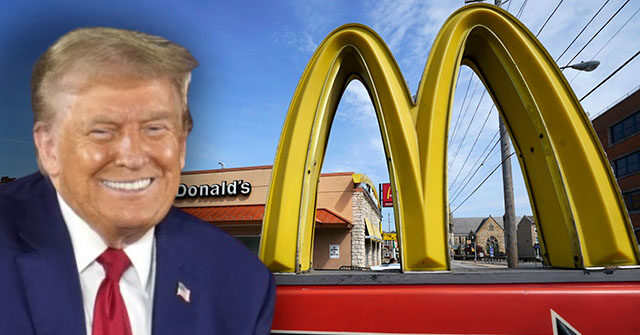Former President Donald Trump is set to make a notable visit to a McDonald’s in Pennsylvania, a key swing state, where he intends to “work the fry cooker.” This engagement is particularly intriguing as it comes on the heels of Trump’s repeated claims that Vice President Kamala Harris never actually worked at McDonald’s, a point he has emphasized in various speeches. During a speech in late September, Trump indicated his plans to visit the fast-food chain, asserting that if he were to work there—even for a short duration—he would have “worked longer and harder at McDonald’s” than Harris did during her supposed tenure at the restaurant. This visit, anticipated to generate media buzz, seems to be part of Trump’s ongoing strategy to challenge Harris’s credibility and her narrative of relating to working-class Americans.
Harris has utilized her claim of briefly working at McDonald’s as a cornerstone of her campaign narrative, projecting an image of understanding and empathy toward middle-class struggles. During a rally in Las Vegas, she mentioned her past experience at the fast-food restaurant, implying that it connects her to the everyday experiences of many Americans. Her campaign has framed this part of her history as evidence of her humble beginnings and determination to succeed, including references to her journey from working at McDonald’s to achieving various significant roles, including that of Vice President. Such narratives are not only designed to resonate with voters but also to solidify her identity as a politician who understands the challenges faced by the average American worker.
In campaign advertising, Harris has emphasized her middle-class upbringing, highlighting her mother’s efforts and their financial struggles. However, recent scrutiny surrounding her claims has led to a more nuanced depiction of her McDonald’s job; she later stated that she was merely a “kid” at the time and that her employment there was more of a summer opportunity to earn extra spending money rather than a necessity tied to her educational expenses. This adjustment came after her initial assertions positioned the job as a way to support her college education, suggesting that her narrative may have been more rooted in political expediency than in her actual life experiences.
Despite these discrepancies in her portrayal of past employment, Harris has remained committed to showcasing her working-class roots as part of her appeal. This approach is evident in her messaging, which continues to emphasize the hard work and perseverance characterized by her journey. Nevertheless, commentators have pointed out the contrast between her campaign narrative and her actual upbringing in Westmount, a wealthy suburb in Montreal, raising questions about the authenticity of her claims. Critics argue that this stark difference may undermine the sincerity of her connection to average American experiences and challenge voters’ perceptions of her relatability.
Trump’s upcoming McDonald’s visit directly challenges Harris’s narrative by presenting a contrasting image. By positioning himself as engaging directly with the fast-food industry and working “among the people,” Trump aims to underscore his skepticism about Harris’s claims and draw attention to any perceived discrepancies in her story. This visit is expected to garner significant media coverage and may serve as a strategic maneuver to further highlight themes of authenticity, credibility, and connection to ordinary Americans—qualities both candidates are keen to portray during this pivotal election cycle.
Ultimately, the interplay between Harris’s and Trump’s narratives surrounding their respective experiences may shape voter perceptions and influence the dynamics of their campaigns. As both candidates seek to portray themselves as champions of working-class interests, Trump’s unique approach of literally taking to the fry cooker at a McDonald’s could not only generate excitement but also reignite discussions about the authenticity of Harris’s claims. While Trump’s intention may be to mock Harris’s assertion and challenge her credibility, the outcome will depend on voter reception and the broader implications this visit holds for both candidates within the context of their ongoing political battles.

